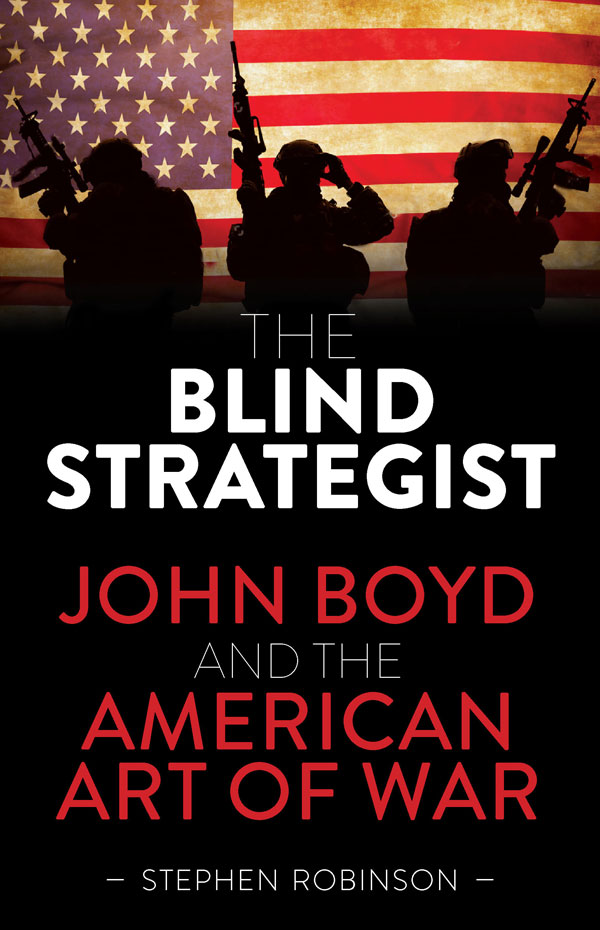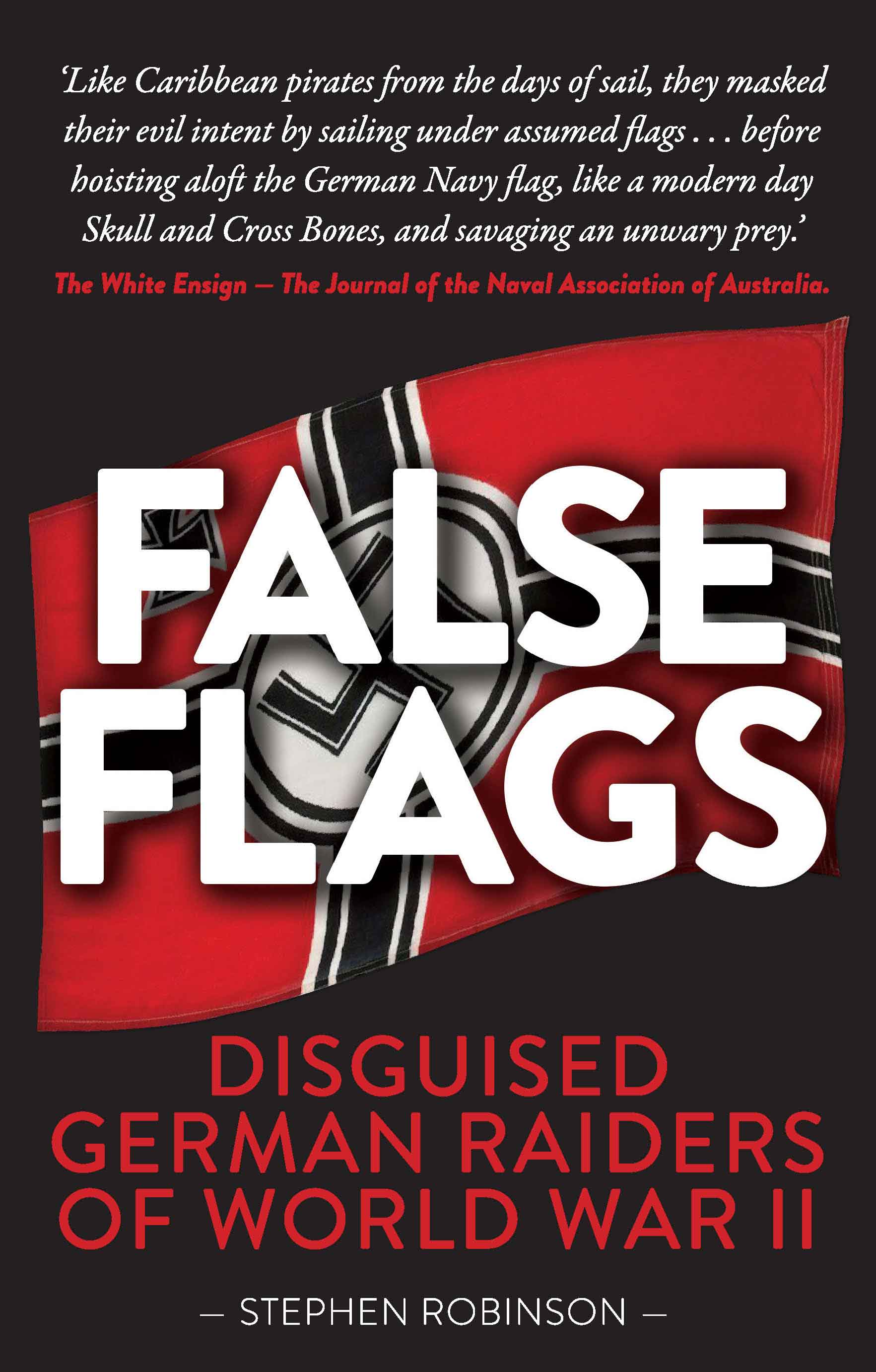Stephen Robinson studied Asian history and politics at the University of Western Sydney, graduating with First Class Honours. He has worked at the Department of Veterans’ Affairs researching British atomic weapons tests and as a policy officer in the Department of Defence. Stephen has graduated from Australian Command and Staff College, worked as an officer in the Australian Army Reserve and has served as an instructor at the Royal Military College.
Stephen’s previous books include False Flags: Disguised German Raiders of World War II (Exisle Publishing, 2016) and Panzer Commander Hermann Balck: Germany’s Master Tactician (Exisle Publishing, 2019). When researching an essay on Maneuver Warfare theory at Staff College, he began to notice the connection between the theory and fraudulent history, beginning an investigation that led him to write The Blind Strategist: John Boyd and the American Art of War.
Franz-Stefan Gady, International Institute for Strategic Studies’ bi-monthly journal ‘Survival: Global Politics and Strategy’
“Overall, Robinson provides a convincing historical account of the origins of the German problem within the US military and why it has persisted.” –
Classic Military Vehicle magazine, Nov 2022
“A must-buy for all those interested in military theory”
US Army War College Quarterly Parameters
Review by Colonel Jonathan Klug, US Army, assistant professor, Department of Military Strategy, Planning, and Operations, US Army War College
“Military professionals and historians alike should read this book and consider it deeply. The Blind Strategist is an excellent catalyst for thought and debate.”
RSA
In “The Blind Strategist” Australian Army Reservist and historian, Stephen Robertson puts forward a very clear and well argued case that the whole theory of manoeuvre warfare as developed by Boyd was based on lies. Click Here to Read more
The Strategy Bridge
“Stephen Robinson’s The Blind Strategist: John Boyd and the American Way of War, is an important revisionist work on Boyd’s ideas, while Robinson does not fully discredit Boyd’s thinking, he forces even the most ardent Boyd acolytes to reexamine the substance and utility of Boyd’s works.”
Australian New Zealander Defender
“I’m in awe of Stephen Robinson, single handedly he has made himself the most influential military theorist of the 21st Century, Not a bad outcome for an Aussie public servant and Australian Army Reservist. A totally outstanding effort.”
Foreign Affairs
“Robinson carries out a meticulous demolition job that will be of interest to students of the Wehrmacht and to the U.S. Army and Marine Corps, demonstrating how grand theories with an emotional appeal can go a long way on the back of dubious history.” Click here to read more
Australian New Zealander Defender
“An Aussie Army Reservist officer may have just undermined the strategic theories underpinning much of the Anglo American tactical warfighting doctrine. Very important book.”
Sir Lawrence Freedman in ‘Foreign Affairs’
“Robinson carries out a meticulous demolition job that will be of interest to students of the Wehrmacht and to the U.S. Army and Marine Corps, demonstrating how grand theories with an emotional appeal can go a long way on the back of dubious history.” Read the full review here
John J. Mearsheimer, the R. Wendell Harrison Distinguished Service Professor of Political Science at the University of Chicago
“Stephen Robinson does a superb job of analyzing the momentous debate about the virtues of “maneuver warfare” that took place in the United States during the latter years of the Cold War. He shows in great detail that the proponents of maneuver – including their guiding light, John Boyd – based their claims on a deeply flawed understanding of history. The Blind Strategist is a must read for all serious students of modern warfare.”
Dr. James Lacey, Horner Chair of Military Theory, Marine Corps University
“Stephen Robinson makes a bold, but utterly convincing, assault on the foundations of nearly fifty years of military thinking. As the United States military and its allies across the globe reorient themselves for the challenges of great state competition, Robinson’s fascinating book is certain to be at the center of the debate.”
Antulio J. Echevarria II, US Army War College
“An important book, one Boyd’s advocates will not want to read, but should.”
Mark F. Cancian (Colonel, USMCR, ret.), Center for Strategic and International Studies
“Robinson’s well researched book questions the tenets of Boyd’s OODA loop, maneuver warfare, infiltration tactics, blitzkrieg, World War II historiography, Desert Storm success, and much more. This will be controversial. Let the debates begin!”
Thomas Waldman, Senior Lecturer in International Security Studies, Macquarie University
“In this important, engaging and meticulously researched study, Stephen Robinson presents a compelling corrective to the maneuverist myth and Boyd worship affecting large parts of the US defense establishment and other Western militaries. For all the undoubted influence of Boyd’s purportedly revolutionary ideas, their uncritical embrace has fostered forms of doctrinal dogmatism, and the resulting operational tunnel vision helps explain recent failures in American strategy. In exposing the flawed foundations of maneuver warfare, this book will hopefully go some way to releasing Boyd’s followers from their blind devotion to the blind strategist.”
Jonathan Stevenson, Senior Fellow for US Defence, International Institute for Strategic Studies, and Managing Editor of Survival
“With the Pentagon contemplating multi-domain operations as the next big thing in military transformation, Stephen Robinson’s meticulously researched, razor-sharp critique of John Boyd, which smartly encapsulates current debates about the relative merits of the maneuver warfare central to such operations, is a crucial resource.”
Professor Anthony King, War Studies, The University of Warwick
“The Blind Strategist is a timely, controversial and iconoclastic book. Stephen Robinson takes aim at a shibboleth of American military doctrine: maneuver. Re-interpreting the story of John Boyd, it debunks the orthodoxy that maneuver is the self-evidently superior form of warfare in all circumstances. Instead, it seeks to re-habilitate the concepts of mass, firepower and attrition articulated in the apparently superseded concept of Active Defence proposed by General William DePuy in the 1970s. This book is essential and challenging reading for US military officers returning to the problem of high-interest inter-state against near peer competitors, after two decades of counter-insurgency.”
Australian Defence Magazine
“a bold assault on nearly fifty years of military thinking” Click here for the full review.
The Daily Telegraph
“An eye-opening book.”
Army News
“If you are going to go the trouble to write a book you may as well make it controversial.”
RUSI (Royal United Services Institute)
“This book is well constructed, and easy to read, especially for those who have background in Command or Staff positions in any Armed Service. Much was learned from reading it.”
John J. Mearsheimer, the R. Wendell Harrison Distinguished Service Professor of Political Science at the University of Chicago
“Stephen Robinson does a superb job of analyzing the momentous debate about the virtues of “maneuver warfare” that took place in the United States during the latter years of the Cold War. He shows in great detail that the proponents of maneuver – including their guiding light, John Boyd – based their claims on a deeply flawed understanding of history. The Blind Strategist is a must read for all serious students of modern warfare.”
Dr. James Lacey, Horner Chair of Military Theory, Marine Corps University
“Stephen Robinson makes a bold, but utterly convincing, assault on the foundations of nearly fifty years of military thinking. As the United States military and its allies across the globe reorient themselves for the challenges of great state competition, Robinson’s fascinating book is certain to be at the center of the debate.”
Antulio J. Echevarria II, US Army War College
“An important book, one Boyd’s advocates will not want to read, but should.”
Mark F. Cancian (Colonel, USMCR, ret.), Center for Strategic and International Studies
“Robinson’s well researched book questions the tenets of Boyd’s OODA loop, maneuver warfare, infiltration tactics, blitzkrieg, World War II historiography, Desert Storm success, and much more. This will be controversial. Let the debates begin!”
Thomas Waldman, Senior Lecturer in International Security Studies, Macquarie University
“In this important, engaging and meticulously researched study, Stephen Robinson presents a compelling corrective to the maneuverist myth and Boyd worship affecting large parts of the US defense establishment and other Western militaries. For all the undoubted influence of Boyd’s purportedly revolutionary ideas, their uncritical embrace has fostered forms of doctrinal dogmatism, and the resulting operational tunnel vision helps explain recent failures in American strategy. In exposing the flawed foundations of maneuver warfare, this book will hopefully go some way to releasing Boyd’s followers from their blind devotion to the blind strategist.”
Jonathan Stevenson, Senior Fellow for US Defence, International Institute for Strategic Studies, and Managing Editor of Survival.
“With the Pentagon contemplating multi-domain operations as the next big thing in military transformation, Stephen Robinson’s meticulously researched, razor-sharp critique of John Boyd, which smartly encapsulates current debates about the relative merits of the maneuver warfare central to such operations, is a crucial resource.”
Professor Anthony King, War Studies, The University of Warwick
“The Blind Strategist is a timely, controversial and iconoclastic book. Stephen Robinson takes aim at a shibboleth of American military doctrine: maneuver. Re-interpreting the story of John Boyd, it debunks the orthodoxy that maneuver is the self-evidently superior form of warfare in all circumstances. Instead, it seeks to re-habilitate the concepts of mass, firepower and attrition articulated in the apparently superseded concept of Active Defence proposed by General William DePuy in the 1970s. This book is essential and challenging reading for US military officers returning to the problem of high-interest inter-state against near peer competitors, after two decades of counter-insurgency.”


 Colonel John Boyd, a maverick fighter pilot, revolutionized the American art of war but his research relied on accounts written by Wehrmacht veterans who fabricated historical evidence to cover up their participation in Nazi war crimes. The Blind Strategist separates fact from fantasy and exposes the myths of maneuver warfare through a detailed evidence-based investigation and is a must-read for anybody interested in American military history.
Colonel John Boyd, a maverick fighter pilot, revolutionized the American art of war but his research relied on accounts written by Wehrmacht veterans who fabricated historical evidence to cover up their participation in Nazi war crimes. The Blind Strategist separates fact from fantasy and exposes the myths of maneuver warfare through a detailed evidence-based investigation and is a must-read for anybody interested in American military history.